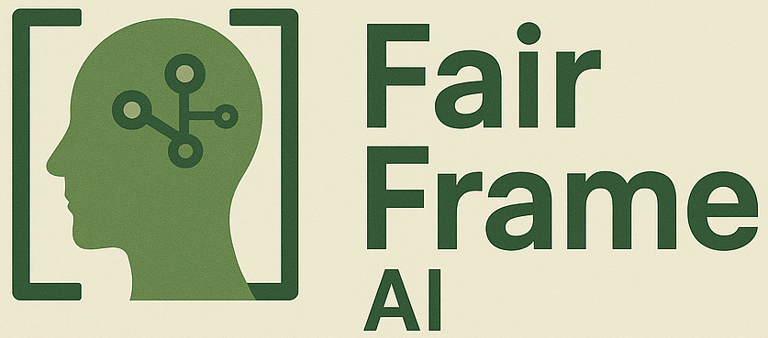Addressing Algorithmic Bias: Fairframe AI's Commitment to Data Transparency
Fairframe AI is dedicated to promoting social justice by tackling bias in AI systems. Our mission focuses on data fairness, algorithmic transparency, and comprehensive audits to ensure equitable outcomes. Join us in creating a future where technology serves everyone fairly and justly through informed education and advocacy.
5/8/20242 min read


Introduction
Artificial Intelligence (AI) is no longer a distant frontier—it’s already shaping the decisions that affect our everyday lives. From determining who gets hired, to influencing access to credit, healthcare, and education, algorithms now play a powerful role in public-impact decisions. But this power comes with a problem: bias.
At FairFrame AI, we believe that AI systems should not inherit or amplify the inequalities of the past. Instead, they must be designed to promote fairness, inclusion, and accountability. Our nonprofit initiative exists to detect, measure, and correct algorithmic bias—ensuring that technology works for everyone, not just a privileged few.
The Problem with Bias in AI
AI systems learn from historical data. And historical data is often steeped in systemic inequality. Whether it's underrepresentation of women in leadership, racial bias in credit scoring, or unequal healthcare outcomes for marginalized communities, algorithms can silently replicate these patterns at scale.
Examples of real-world impact include:
Career copilots that steer women or minorities away from high-level roles
Diagnostic tools that miss symptoms in underrepresented populations
Education platforms that underestimate students based on outdated data
These outcomes are not bugs—they’re features of flawed data pipelines and opaque algorithms. Left unaddressed, they reinforce discrimination behind a mask of “objectivity.”
Our Mission
FairFrame AI is committed to tackling this problem head-on. Our work is grounded in three core pillars:
1. Data Fairness
We analyze training datasets to detect gaps, underrepresentation, or skewed patterns that reflect historical bias. This helps prevent the replication of inequality in modern AI systems.
2. Algorithmic Transparency
We push for openness in how AI systems make decisions. If users and developers don’t understand how algorithms operate, there's no way to challenge or correct unfair outcomes.
3. Comprehensive Audits
We conduct hands-on bias audits of real-world AI tools—particularly in career guidance, healthcare, and education. These audits surface inequities that would otherwise remain invisible.
Our Tools for Change
To translate principles into practice, FairFrame AI is building open-access tools that can be used by nonprofits, educators, startups, and even individual users:
Bias Audit Toolkit – Scan datasets for representation gaps and outcome disparities
Prompt Bias Evaluator – Test LLM outputs for gendered or racial assumptions
FairFrame Report Generator – Create actionable insights from bias evaluations
Education Hub – Access explainers, workshops, and community learning guides
Our goal is to empower both technical and non-technical stakeholders to understand how AI bias operates—and how to stop it.
Join Us
Creating a just technological future requires collective action. Whether you're a developer, policymaker, educator, or concerned citizen, there’s a role for you in reshaping how AI works in the world.
Here's how you can get involved:
Request a Pilot Audit of your organization’s AI tools
Volunteer or Test Our Tools as a student or developer
Partner with Us to scale education and research efforts
Follow Our Work and share it within your networks
Looking Ahead
Bias in AI isn’t always visible—but its effects are. By surfacing and correcting hidden patterns of discrimination, FairFrame AI is helping to ensure that emerging technologies are equitable, accountable, and truly inclusive.
This isn’t just about technology. It’s about justice, trust, and the kind of society we want to build. And it starts with transparency.
Contact
Get in touch for collaboration and inquiries.
Join
info@fairframeai.org
© 2025. All rights reserved.
